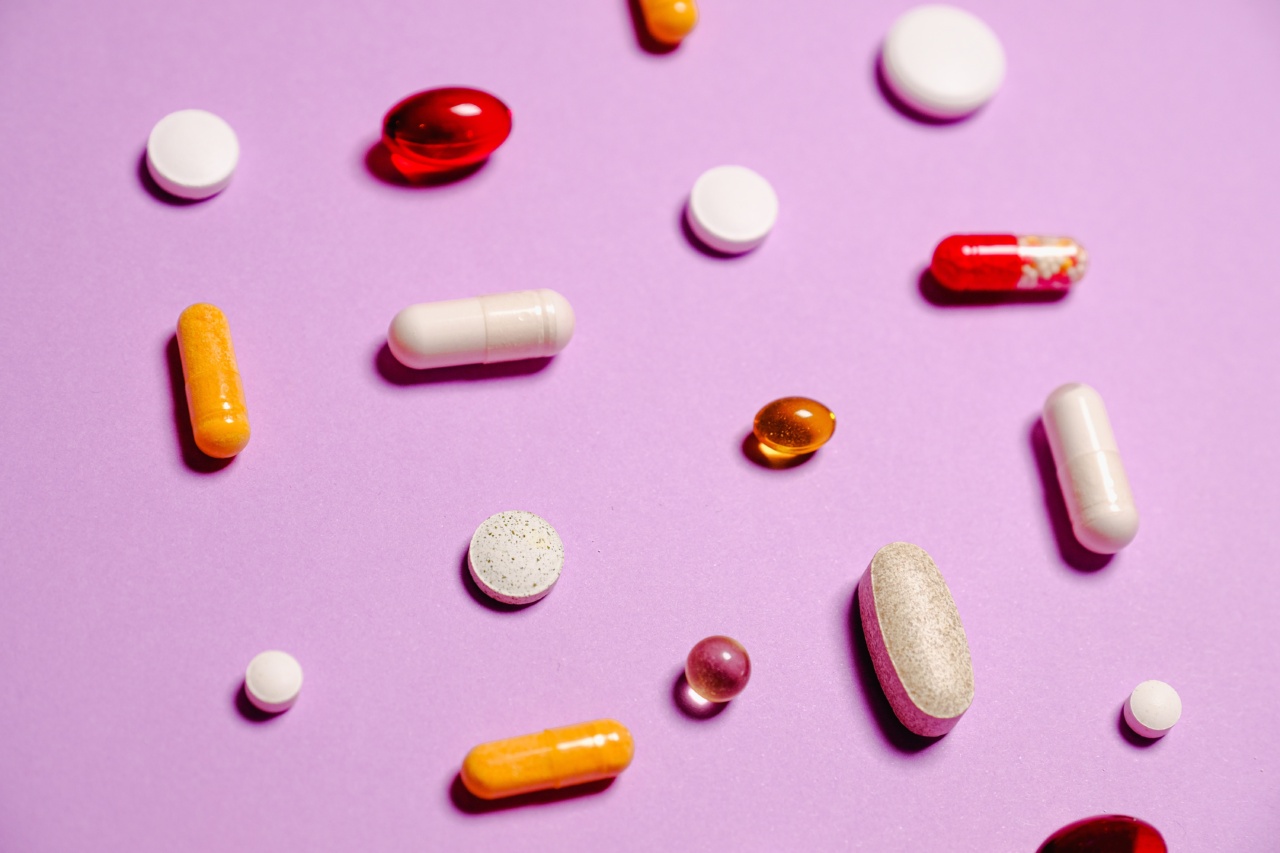Hyperactivity is a common condition that affects many children and even some adults. It is characterized by excessive activity, impulsivity, and difficulty paying attention.
While there are various treatment options available, including behavioral therapy and medication, some individuals may seek alternative remedies to alleviate symptoms. One such approach is through the use of vitamins. In this article, we will explore the potential benefits of certain vitamins in relieving hyperactivity and improving focus.
1. Vitamin B6
Vitamin B6, also known as pyridoxine, plays a crucial role in promoting brain development and function. Studies have suggested that a deficiency in this vitamin may contribute to symptoms of hyperactivity and inattention.
It is believed that vitamin B6 helps produce serotonin, a neurotransmitter that aids in regulating mood and behavior. By ensuring an adequate intake of vitamin B6, individuals may experience a reduction in hyperactivity and an improvement in attention and focus.
2. Omega-3 Fatty Acids
Omega-3 fatty acids, particularly EPA (eicosapentaenoic acid) and DHA (docosahexaenoic acid), are essential for brain health and function. These fatty acids are primarily found in oily fish like salmon, mackerel, and sardines.
Research has indicated that individuals with ADHD, a condition often associated with hyperactivity, tend to have lower levels of omega-3 fatty acids in their blood. Supplementation with omega-3 fatty acids, either through diet or supplements, may help alleviate symptoms of hyperactivity and impulsivity.
3. Magnesium
Magnesium is involved in over 300 biochemical reactions in the body, including those that regulate brain function and mood. Low magnesium levels have been linked to ADHD and symptoms of hyperactivity.
By ensuring an adequate intake of magnesium, individuals may experience a reduction in hyperactivity and an improvement in attention span. Magnesium-rich foods include leafy greens, nuts, seeds, and whole grains.
4. Zinc
Zinc is an essential mineral that plays a vital role in cognitive function and neurotransmitter regulation. Several studies have noted a correlation between zinc deficiency and symptoms of ADHD, including hyperactivity.
By incorporating zinc-rich foods like oysters, beef, poultry, and legumes into the diet, individuals may help alleviate hyperactivity and improve focus.
5. Iron
Iron is crucial for healthy brain development and optimal cognitive function. Studies have found a higher prevalence of iron deficiency in children with ADHD and hyperactivity symptoms.
Iron supplementation, under the guidance of a healthcare professional, may help improve symptoms of hyperactivity and boost attention span. Iron-rich foods include red meat, spinach, lentils, and fortified cereals.
6. Vitamin C
Vitamin C is an antioxidant that supports brain health and function. It plays a key role in producing neurotransmitters like dopamine, which is involved in regulating mood and behavior.
Some research suggests a potential benefit of vitamin C in reducing hyperactivity symptoms. Including vitamin C-rich foods, such as citrus fruits, strawberries, bell peppers, and broccoli, may help individuals with hyperactivity find relief.
7. Vitamin D
Vitamin D is not only essential for bone health but also plays a role in brain function. Research has shown a possible correlation between low vitamin D levels and ADHD symptoms, including hyperactivity.
Spending time outdoors to soak up sunlight is a natural way to enhance vitamin D production in the body. Additionally, foods like fatty fish, fortified dairy products, and egg yolks can help maintain adequate vitamin D levels.
8. Vitamin E
Vitamin E is an antioxidant that protects cells from damage. It also supports healthy brain function and may have a positive impact on hyperactivity symptoms.
While research in this area is limited, some studies have suggested a potential benefit of vitamin E supplementation in reducing ADHD symptoms. Vitamin E-rich foods include nuts, seeds, spinach, and broccoli.
9. Vitamin B12
Vitamin B12 is essential for proper brain development and function. Deficiency in this vitamin has been associated with symptoms of ADHD, including hyperactivity.
By consuming foods rich in vitamin B12 like meat, fish, dairy products, and fortified cereals, individuals may help improve attention and reduce hyperactivity.
10. Multivitamin Supplements
While individual vitamins have been discussed, it is important to emphasize the potential benefits of a well-rounded multivitamin supplement.
A multivitamin can provide a variety of essential nutrients, including those mentioned above, that are crucial for brain health and function. However, it is important to consult with a healthcare professional before starting any supplementation regimen.
Conclusion
While vitamins alone may not be a cure for hyperactivity, incorporating certain vitamins into one’s diet or exploring supplementation options may help alleviate symptoms and improve attention.
Vitamin B6, omega-3 fatty acids, magnesium, zinc, iron, vitamin C, vitamin D, vitamin E, vitamin B12, and a comprehensive multivitamin may all contribute to relieving hyperactivity and enhancing focus. It is essential to consult with a healthcare professional before making any significant changes to one’s diet or starting a supplementation regimen.































